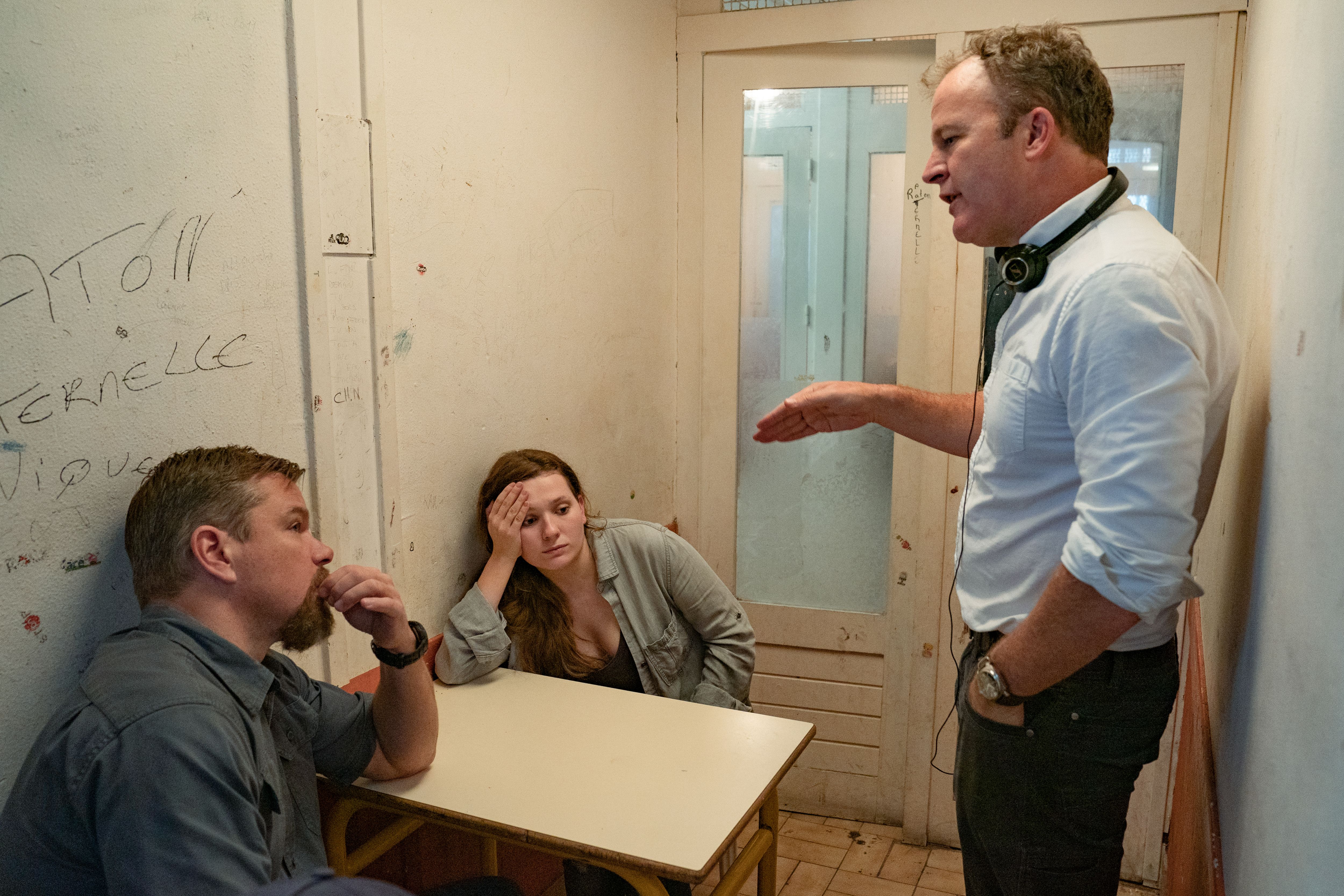Tom McCarthy Interview: Stillwater | Screen Rant
Stillwater, out in theaters on July 30, explores a father's determination in the face of cultural and language barriers. Loosely based on the story of Amanda Knox, it follows Oklahoman oil worker Bill (Matt Damon) as he tries to exonerate his estranged daughter (Abigail Breslin) from a crime she supposedly committed in France. Bill travels to Marseille and makes it his mission to free his daughter, all while dealing with the country's unfamiliar customs and laws.
Writer-director Tom McCarthy (Spotlight) spoke to Screen Rant about his inspiration for the script and his collaboration process with star Damon.
Screen Rant: Stillwater is a brilliantly crafted human story with so many layers. Where did the idea of Stillwater come from, Tom?
Tom McCarthy: At this point is so anthropological for me too because it’s been so long in the making. It’s a script I started, I put down, I revisited, the pandemic hit. I feel like I started this in 1972 to be quite frank. 10 years ago, I was talking to this other writer, Marcus Hinchey about the Amanda Knox case. We were really fascinated by it, and we started focusing on the relationship of a young American student in jail for a sensational murder and the relationship with her father.
We worked on a script for a better part of a year, but at the end of that, I was just not satisfied with it. I didn’t think it represented the kind of movie I wanted to make and I wasn’t ready to make it, so I put it away. Then 6 or 7 years later I picked it back up and read it. I still like the idea behind this, I just didn’t like the movie and I sought out two new writers. These French writers, whose work I really loved, Thomas Bidegain and Noé Debré. I just reached out. I sent cold letters. I sent an email. I’m like, “I love your work, I got this script, and I’m not precious about anything of it. I just like the idea of it.”
We started from scratch, really, and reworked it. It was such a fun collaboration and I’m such a fan of French cinema. To work with these guys who are so steeped in it and European Cinema and to see the choices they made in terms of character and story, and matching the two, sort of American movies and French movies, and finding our middle ground, and creatively, that was super fun. If we never made the movie, that was cool.
You’re a master filmmaker. You have an Oscar for filmmaking, and 90% of your crew was French. Can you talk to me about what you learned collaborating with your fellow French filmmakers and their style and approach to cinema?
Tom McCarthy: Well look, there’s a common language which is cinema, which is movies, right? The French have this insane tradition, this incredible tradition which certainly rivals and parallels ours in terms of movie-making.
I was so humbled to be there. Even working with these writers and expanding that into the crew, you realize that in America it does sometimes feel like an industry, right? It’s big. It’s everything American. In French cinema, it’s still very personal. Very intimate. Very intelligent, and you can see that with everyone I’ve collaborated with to my script supervisor, to my sound mixer, and everyone along the way, they were just so engaged in all of the elements of the story.
It felt very intimate and personal in that way. That’s something I respond to as a filmmaker. It’s something that we all picked up on as a team. I know Matt [Damon] really enjoyed that. It felt like we were transported to another time making this movie. We felt lucky to be able to do it.

I wanna ask a quick question about Matt Damon. He brings weight as a performer and completely disappears in the role at the same time. How did Matt complete the character of Bill for you?
Tom McCarthy: As writers and even a director, you always get the work to a certain point, and then you need an actor to come in and elevate it, right? It’s like a coach with a game plan. Unless you have the athletes that can execute, then forget about it. Matt can execute.
I think my greatest job as a director was really to give him the permission to do what he’s capable of doing. He just worked with Christian Bale, he’s like, “Wow, Bale, man. He just goes deep. He does this”, and I’m like, "Matt, it’s like Kobe talking about LaBron or something" and you’re like, "Guess what, you can do that. You happen to be one of those special people, so go be you." I think that’s what he needed to hear on some level. Go get lost, man, go dig deep. The ground is there, the maps laid out in terms of the script but now you gotta bring yourself to it and your full bag of tricks. He did and I think he relished the opportunity to get lost as you say.
from ScreenRant - Feed https://ift.tt/3rCRlGc
via Whole story

Post a Comment